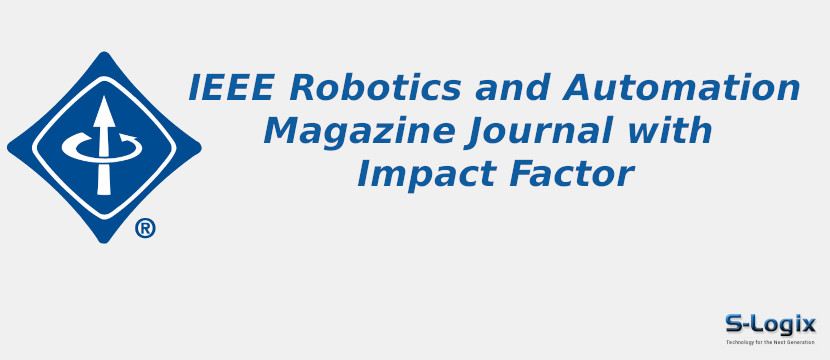Journal Home: Journal Homepage
Editor-in-Chief: Yi Guo
Print ISSN: 10709932
Electronic ISSN:
Abstracting and Indexing: Scopus, Science Citation Index Expanded
Imapct Factor 2024: 7.1
Subject Area and Category: Computer Science, Computer Science Applications, Engineering , Control and Systems Engineering , Electrical and Electronic Engineering
Publication Frequency:
H Index: 109
Q1: Computer Science Applications
Q2:
Q3:
Q4:
Cite Score: 7.9
SNIP: 2.018
Journal Rank(SJR): 0.996
Latest Articles: Latest Articles in IEEE Robotics and Automation Magazine
Guidelines for Authors: IEEE Robotics and Automation Magazine Author Guidelines
Paper Submissions: Paper Submissions in IEEE Robotics and Automation Magazine
Publisher: Institute of Electrical and Electronics Engineers Inc.
Country: United States
